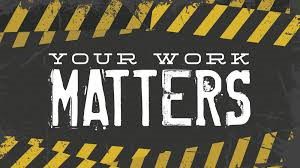 A major gift officer can have a long list of credentials (schools attended, diplomas, certifications, etc.) and be a total failure at actually doing major gifts. Conversely, a MGO can have no schooling, no credentials, no certifications – and be an outstanding, high-achieving MGO. Jeff and I have seen this over and over again.
A major gift officer can have a long list of credentials (schools attended, diplomas, certifications, etc.) and be a total failure at actually doing major gifts. Conversely, a MGO can have no schooling, no credentials, no certifications – and be an outstanding, high-achieving MGO. Jeff and I have seen this over and over again.
In Seth Godin’s blog “Where did you go to school?” he basically makes that point. In his blog he writes:
“An interesting question (where did you go to school), perhaps, but irrelevant to a job interview.
“The campus you spent four years on thirty years ago makes very little contribution to the job you’re going to do. Here’s what matters: the way you approach your work. What have you built? What have you led? How do you make decisions? What’s your reserve of emotional labor like? How do you act when no one is looking?
“You are not your resume. You are the trail you’ve left behind, the people you’ve influenced, the work you’ve done.”
Now don’t get me wrong – I believe in the value of books and education and training, and the diplomas and certifications that go along with them. I should be, since Jeff and I have written a book and developed trainings that have certifications that go with them!
But I want to acknowledge their shortcomings. Not everything can be learned through study, and not every expertise is reflected in a degree or certificate.
Consider what is needed in major gifts:
- A genuine caring for the donor. You can’t learn this stuff out of a book. It comes from the heart. Do you really care about your caseload donors? Are you really interested in what they care about? That is what is important.
- An ability to sort conflicting values and positions inside the organization. As a MGO you have to sort out what finance thinks about a project in terms of costs, what program knows about the project in terms of impact and profile, and the priorities of various stakeholders: the CEO, the board, etc. A MGO has to navigate many rooms in the house to be able to give the donor what he needs. While study may help you understand the dynamics of the situation, in my opinion, this is more about the ability to listen, compromise, find a new way, etc.
- The ability to stand up and dust off after rejection and failure. Major gifts is full of “no’s” and stops and starts. Some people can take it. Many can’t. You can learn to adjust, but it takes time. Can you take a class on this? Personal counseling is what helped me the most when learning how to deal with rejection.
- Loving goal-setting and planning. Again, you can learn a lot in books and school about these two items but there is also an emotional and psychological side to goal-setting and planning that is sharpened and honed by trial and error and practice.
- Matching the needs of the organization with those of the donor. This is more art than science, although there is a logic to it. But you have to listen well – to the donor and to the internal stakeholders like program and finance. And listening is learned best by face-to-face time with others.
- Experience. There is nothing like it. And experience is what you bring to the job. As Seth says: “it is the work you have done” that is the most important. It is your experience that has taught you what to say or not say. It is your experience that guides your planning and your prioritizing. It is your experience that guides you in moments of rejection – you know, from experience, that there is another day – that what has happened today is not the end, that you will get another chance.
Again, I want to be clear that I am not against education, books or formal learning – so don’t draw that conclusion from this writing. What I am saying is that being able to navigate a relationship with a donor and serve those needs while paying attention to the organizational values you need to deliver – these are skills that may be studied, but you really learn them through time on the job. Your actual work, past and present, is what matters most.
Focus your efforts on getting better at getting results that value the donor long-term and meet organization needs. That is the real value.
Richard





0 Comments